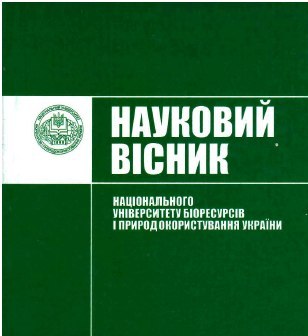Methods and strategies for learning german language
DOI:
https://doi.org/10.31548/philolog0(248).2016.0191%20-%20200Abstract
The article analyzes the modern German methods and learning strategies and their importance for successful learning of German language at an early stage in the universities of Ukraine.
It is found that the issue of theory and practice of teaching German outside Germany always were as well as now are in the focus of attention of German scientists and student- teachers. In particular, this issue is of the urgent interest for the branch of the Goethe Institute in Ukraine.
The generalized results of studying the structure and content of their development, experience, recommendations for self-motivation and personal growth of those studying German are represented.
The description of general methods and strategies in foreign language teaching on early stages of education are also represented.
It is noticed that the German professional publications contain a lot of theoretical and practical material, as well as guidance notes and advices.
In modern methodological literature there are distinguished four main conceptual approaches or learning strategies: behavior, intuitively conscious, conscious cognitive and communicative approach.
It is proposed to adopt the moments that are missed in Ukrainian guidance manuals and textbooks or those that are insufficiently highlighted.
The attention is paid for the fact, that the learning process of foreign language teaching includes three main stages. These are the stage of the new foreign language material presentation, the stage of training and the stage of practice in the application of the material learned in the communication process in different types of speech activity.
It is concluded that success in foreign language learning depends on the effective use of methodological principles, the basic of which is the dominant role of exercises. At all stages of education it is implemented in the process of doing various exercises, which encourages students to commit acts of speech, which are based on certain speech and mental operations.
Formation and improvement of skills and abilities of speech are due to the functioning of relative operations in the process of improvement of exercises, use of the latest methods and strategies.
References
Nahaev B.M. Metodyka vykladanya u vyshchiy shkoli: Navch. Posibnyk. [Translation: Methods of teaching in higher education: a study guide]
B.M. Nahaev. Centr uchbovoy literatury. K., 2007. – s.112-113, s. 116-117
Nikolayeva S.V. ta inshi. Metodyka vykladanya inozemnyh mov u serednyih navchalnyh zakladah: pidruchnyk [Translation: Methods of teaching foreign languages in secondary schools: Tutorial] S.V. Nikolayeva. K., «Lenvit», 2002.-s.38-53.
Albert Rash. Fremdshprahen lernen, aber vie.? [Translation: to learn foreign languages, but how!] Rash Albert. Huber Ferlag, 2008. – s.147
Rayner E.Vike; Herc oder Pistole. Kommunikatives fyur Unterriht. [Translation: the heart or the gun. Communicative for classes] E.Vike Rayner. Hueber Ferlag, Ismaning, 2011.-s. 24 – 41
Rampillon Ute. Lerntehniken im Fremdshprahenunterriht. [Translation: educational technology in the lesson foreign language] Ute Rampillon. Max Huberferlag. 1999, s. 14-18.
Downloads
Issue
Section
License
Relationship between right holders and users shall be governed by the terms of the license Creative Commons Attribution – non-commercial – Distribution On Same Conditions 4.0 international (CC BY-NC-SA 4.0):https://creativecommons.org/licenses/by-nc-sa/4.0/deed.uk
Authors who publish with this journal agree to the following terms:
- Authors retain copyright and grant the journal right of first publication with the work simultaneously licensed under a Creative Commons Attribution License that allows others to share the work with an acknowledgement of the work's authorship and initial publication in this journal.
- Authors are able to enter into separate, additional contractual arrangements for the non-exclusive distribution of the journal's published version of the work (e.g., post it to an institutional repository or publish it in a book), with an acknowledgement of its initial publication in this journal.
- Authors are permitted and encouraged to post their work online (e.g., in institutional repositories or on their website) prior to and during the submission process, as it can lead to productive exchanges, as well as earlier and greater citation of published work (See The Effect of Open Access).

